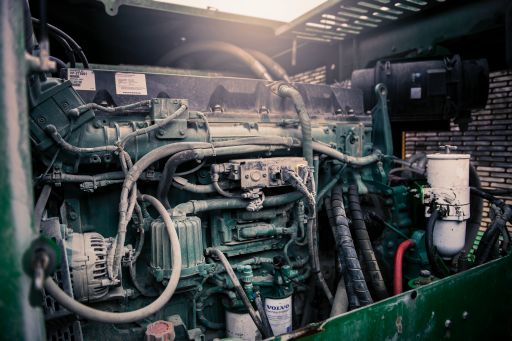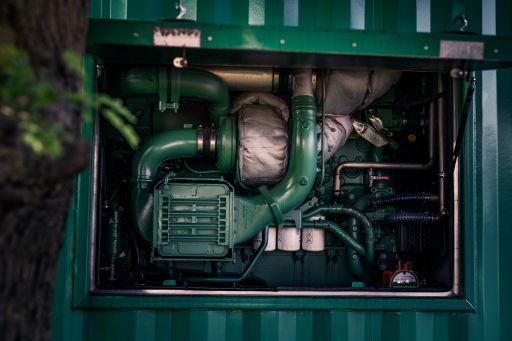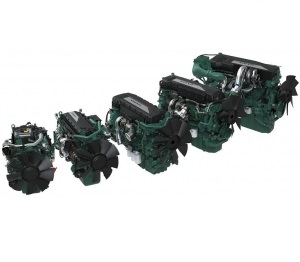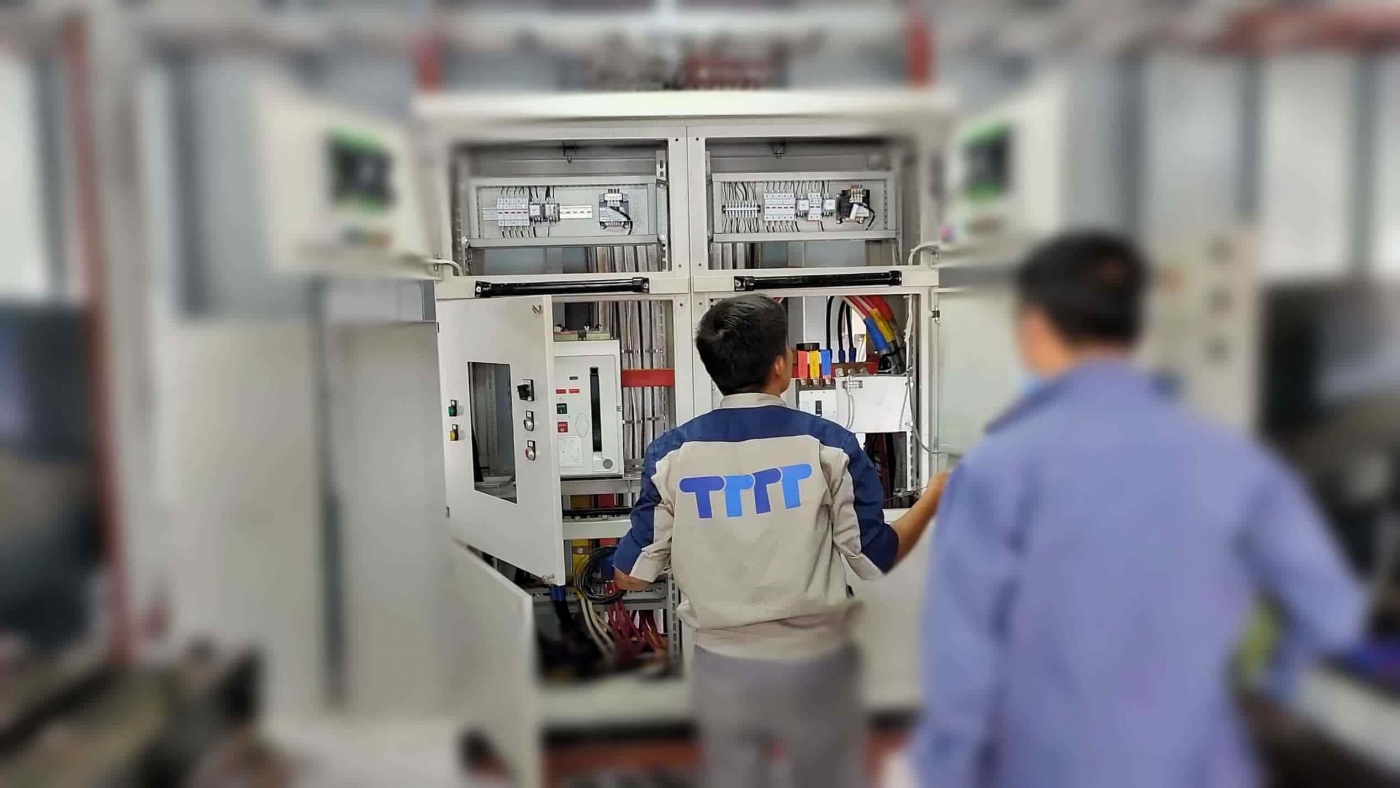ALTERNATOR
Diesel engine (or diesel engine oil) is important component in industrial machine production , they create value and high efficiency for business, production, human activities, The power of the engine is increasingly improved along with many applied technologies such as fuel saving, environmental safety, limiting harmful emissions,… In the following article, TTTT will accompany customers Learn more about the diesel engine and the Volvo Penta engine brand.
What is diesel engine?

Diesel engine TTTT, also known as CI engine (compression combustion engine) is a type of internal combustion engine. In it, the fuel ignition is caused by the high temperature of the air in the cylinder due to mechanical compression. Combustion of the fuel, i.e. diesel, occurs in the combustion chamber when the piston approaches top dead center during the compression stroke, which is spontaneous combustion under the influence of high temperature and pressure of the compressed air.
Structure of diesel engine
Piston
This is an important part of a diesel engines. In the engine, the piston receives the pressure due to the expansion of the combustible gas and then transmits the force to the crankshaft to generate work during the explosion and receives the force from the crankshaft to perform the intake, compression and exhaust processes in the internal combustion diesel engine 4 stroke and in a diesel engine 2-stroke internal combustion engine, the piston also performs the function of opening and closing the intake and exhaust valves.
Piston ring
Piston rings are metal rings, usually made of gray or alloyed cast iron, or steel. The ring is located in the grooves above the piston of engine industrial engine. There are usually 3 types of rings on 1 piston of 4-stroke engines: Fire ring, pressure ring and oil ring. A 2-stroke engine has only 2 steam rings: It is a ring ring. fire and sealing ring, there is no oil ring, because the lubricating oil is mixed with the burning gasoline, and is discharged with the exhaust gas.
Combustion chamber
For diesel engine, the fuel will be injected in the form of mist from the injector and mixed with the air to be ignited and ignited. Therefore, for the best combustion stage, the fuel injected and the air need to be mixed in the combustion chamber. Volvo engines also have a direct injection combustion chamber.
Cylinder sleeve
Currently, cylinders of diesel engine are divided into two basic types as follows:
Cylinder sleeve: Constructed with the top of the jacket protruding on the top of the body face to prevent gas leakage. They include 2 types of wet and dry cylinder sleeve.
Cylinder without sleeve: This type uses special alloy cast iron with better wear resistance. The engine is made lighter by narrowing the distance between the cylinder holes.
Cylinder head gasket
This is the part located between the body and the cylinder head. This gasket has the effect of preventing combustible gas, cooling water, and oil from leaking between the engine body and the cylinder cover. Therefore, it must withstand pressure, withstand heat and have appropriate elasticity. Normally, thin-rolled steel cylinder head gasket is used to prolong the life of the cylinder head gasket thereby preventing the leakage of combustible gas.
Reference: Volvo Penta diesel engine design and function
Working principle of diesel industrial engine

The operating principle of diesel industrial engine includes:
- Intake Stroke – The piston starts at the top of the cylinder, as it moves downward the intake valves open and an air-fuel mixture is introduced into the combustion chamber. The mixture enters the low pressure zone caused by the piston movement.
- Compression Stroke – This stroke begins with the piston at the bottom of the cylinder. After the fuel-air mixture has filled the cylinder and the intake valves have closed, the piston begins rising for compression. At the top of the cycle, the mixture has nowhere to go, and is ignited.
- Power Stroke – This stroke begins after ignition. The valves remain closed, and the ignited mixture expands and pushes the piston back down.
- Exhaust Stroke – Once the power stroke ends, the exhaust valve opens and the used mixture is expelled as the piston returns to the top.
Reference: Volvo Penta spare parts
Types of diesel engine
There are many types of diesel engine, of which the most common ones include:
Classification by cylinders of the engines
By number of cylinders: 1-cylinder engine, multi-cylinder engine.
According to the way of placing cylinders: Engines are placed in line, horizontally, V-engines, etc.
Classification according to combustion chamber structure
- Diesel engines use a unified combustion chamber.
- Diesel engine use a backup combustion chamber.
Classification according to the operating cycle
- Diesel engine 2 stroke.
- Diesel engine 4 stroke.
Classification according to loading method
- The engine is not turbocharged.
- Turbocharger engine.
Advantages of diesel engine

Diesel engine oil have many advantages that we need to pay attention to, these advantages have created their irreplaceable value in today’s life, typically:
- The engines have the highest efficiency of all internal combustion engines.
- Fuel is cheap, so the fuel consumption cost of the engines is low.
- The engine has good lubricating properties.
- Diesel engines do not produce flammable vapors, so the risk of ignition is low.
- Reduce harmful emissions into the environment.
- Can use turbocharger for large capacity.
Reference: Volvo Penta VE engine
Diesel engine applications
Diesel engine using diesel fuel are now widely used in life. Some applications included:
- Volvo Penta VE Engine for passenger car.
- Diesel engines produce commercial vehicles.
- Oil pump engine.
- Manufacture of vehicles transporting minerals.
- Diesel Engine for forklift production.
- Engines for military equipment: tanks, military vehicles,…
- Manufacture of air compressors.
- Manufacture of fire pumps.
Diesel Engine are currently used in many industries, helping to lift and move goods in outdoor areas, rough terrain or inclement weather. This type of engine has the advantage of strong, durable, high working efficiency, just need to refuel to be able to operate many continuous shifts, etc., so it is quite popular.
Notices when using diesel engine
We have selected and listed some notes when using diesel engines that customers need to pay attention to, which are:
- When operating a the engine, it is necessary to keep a distance from the flywheel according to the regulations for use specified in the manual, absolutely do not touch the tank.
- It is recommended to install the diesel engine oil in a dry location, away from moisture.
- Before operation, it is necessary to ensure that there is enough diesel fuel source.
Use diesel fuel that does not contain impurities, etc. to ensure compliance with the manufacturer’s regulations. - Users need to regularly check the amount of diesel remaining inside the machine and refuel when necessary. Please wait for the device to cool before refueling to avoid causing an explosion.
- Pay attention to inspection and maintenance, periodic maintenance for the engine to operate more efficiently and safely.
- If the engine is not used on a regular basis, after a period of time should proceed to idling the engine.
- It is recommended to buy a engine with a residual capacity of about 20-30% of the required load capacity to help the engine be durable, increase its life and avoid underloading.
For more information, please contact us at:
TTTT GLOBAL co Ltd,.
Address: Landmark 4 Building, Vinhomes Central Park, 720A Dien Bien Phu Str, Ward 22, Binh Thanh District, Ho Chi Minh City, Vietnam.
Phone: +84 286 2728334.
Website: https://ttttglobal.com/en/
Email: Info@ttttglobal.com




